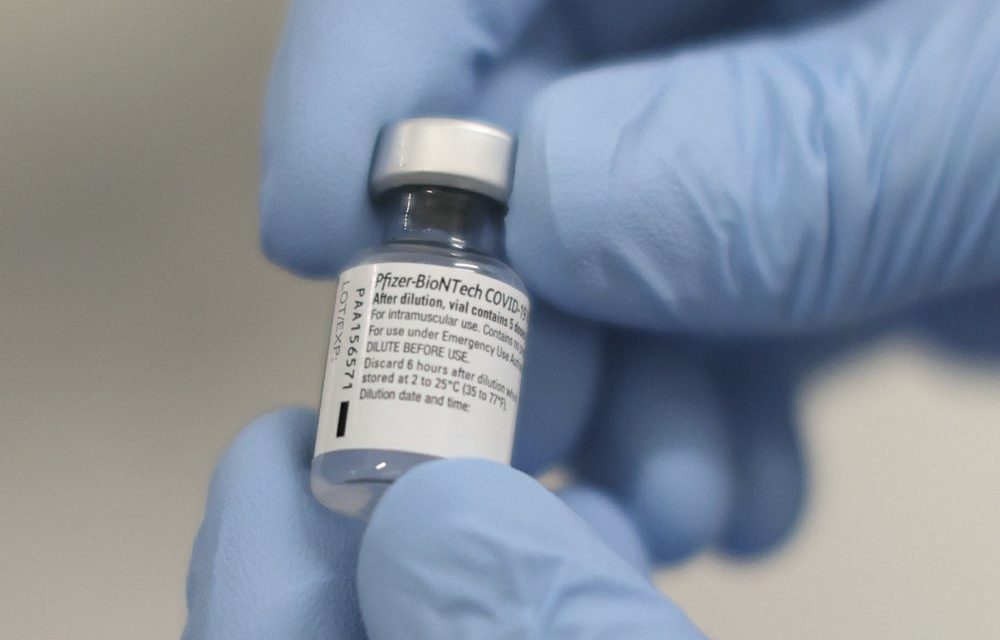Written by LAURAN NEERGAARD and MATTHEW PERRONE
U.S. regulators say transplant recipients and others with severely weakened immune systems can get an extra dose of the Pfizer or Moderna COVID-19 vaccines to better protect them as the delta variant continues to surge.
The late-night announcement Thursday by the Food and Drug Administration applies to several million Americans who are especially vulnerable because of organ transplants, certain cancers or other disorders. Several other countries, including France and Israel, have similar recommendations.
It’s harder for vaccines to rev up an immune system suppressed by certain medications and diseases, so those patients don’t always get the same protection as otherwise healthy people — and small studies suggest for at least some, an extra dose may be the solution.
“Today’s action allows doctors to boost immunity in certain immunocompromised individuals who need extra protection from COVID-19,” Dr. Janet Woodcock, the FDA’s acting commissioner, said in a statement.
The FDA determined that transplant recipients and others with a similar level of compromised immunity can receive a third dose of the vaccines from Pfizer and Moderna at least 28 days after getting their second shot. The FDA made no mention of immune-compromised patients who received the single-dose Johnson & Johnson vaccine.
The announcement comes as the extra-contagious delta version of the coronavirus surges through much of the country, pushing new cases, hospitalizations and deaths to heights not seen since last winter.
Importantly, the FDA’s decision only applies to this high-risk group, estimated to be no more than 3% of U.S. adults. It’s not an opening for booster doses for the general population.
Instead, health authorities consider the extra dose part of the initial prescription for the immune-compromised. For example, France since April has encouraged that such patients get a third dose four weeks after their regular second shot. Israel and Germany also recently began recommending a third dose of two-dose vaccines.
Separately, U.S. health officials are continuing to closely monitor if and when average people’s immunity wanes enough to require boosters for everyone — but for now, the vaccines continue to offer robust protection for the general population.
The Centers for Disease Control and Prevention is expected to formally recommend the extra shots for certain immune-compromised groups after a meeting Friday of its outside advisers.
Transplant recipients and others with suppressed immune systems know they’re at more risk than the average American and some have been seeking out extra doses on their own, even if it means lying about their vaccination status. The change means now the high-risk groups can more easily get another shot — but experts caution it’s not yet clear exactly who should.
“This is all going to be very personalized,” cautioned Dr. Dorry Segev, a transplant surgeon at Johns Hopkins University who is running a major National Institutes of Health study of extra shots for organ recipients. For some people, a third dose “increases their immune response. Yet for some people it does not seem to. We don’t quite know who’s who yet.”
One recent study of more than 650 transplant recipients found just over half harbored virus-fighting antibodies after two doses of the Pfizer or Moderna vaccines — although generally less than in otherwise healthy vaccinated people. Another study of people with rheumatoid arthritis and similar autoimmune diseases found only those who use particular medications have very poor vaccine responses.
There’s little data on how well a third dose works, and if it causes any safety problems such as an increased risk of organ rejection. Wednesday, Canadian researchers reported that transplant recipients were more likely to have high levels of antibodies if they got a third dose than those given a dummy shot for comparison. Other small studies have similarly found that some transplant recipients respond to a third dose while others still lack enough protection.
Photo via Liam McBurney/Pool and Associated Press.
Related Stories
‹
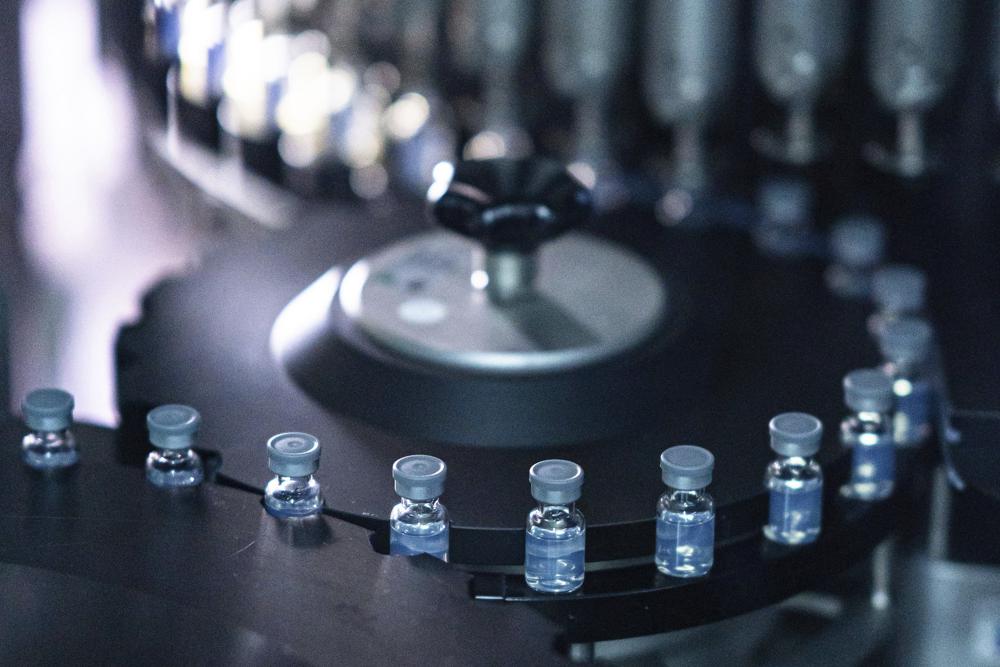
US Clears Updated COVID Boosters Targeting Newest VariantsWritten by LAURAN NEERGAARD The U.S. on Wednesday authorized its first update to COVID-19 vaccines, booster doses that target today’s most common omicron strain. Shots could begin within days. The move by the Food and Drug Administration tweaks the recipe of shots made by Pfizer and rival Moderna that already have saved millions of lives. The hope […]
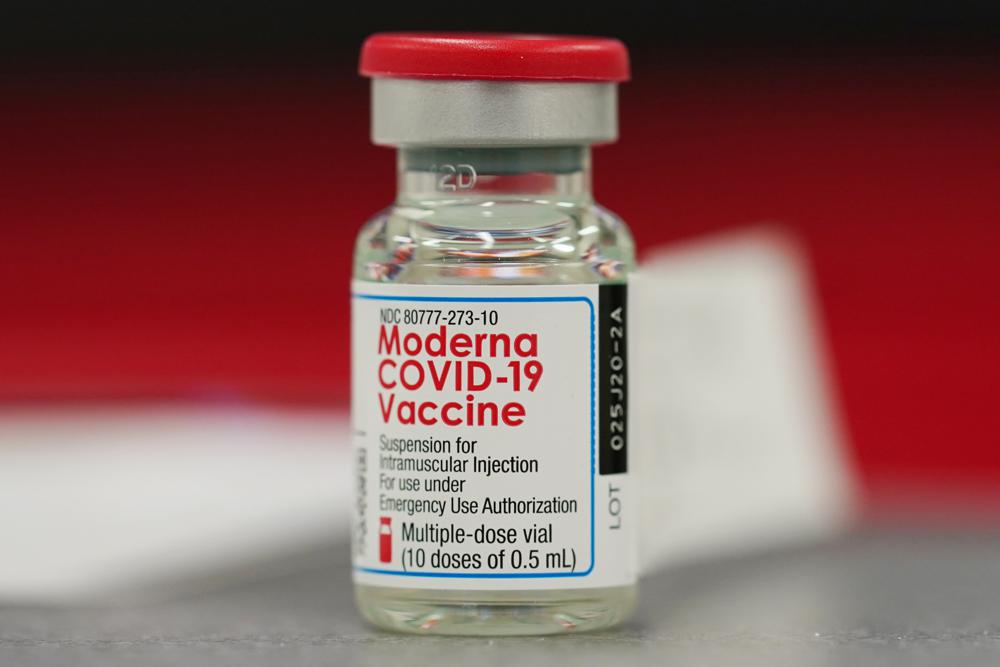
Moderna Says Its Low-Dose COVID Shots Work for Kids Under 6Written by LAURAN NEERGAARD Moderna’s COVID-19 vaccine works in babies, toddlers and preschoolers, the company announced Wednesday — and if regulators agree it could mean a chance to finally start vaccinating the littlest kids by summer. Moderna said in the coming weeks it would ask regulators in the U.S. and Europe to authorize two small-dose […]
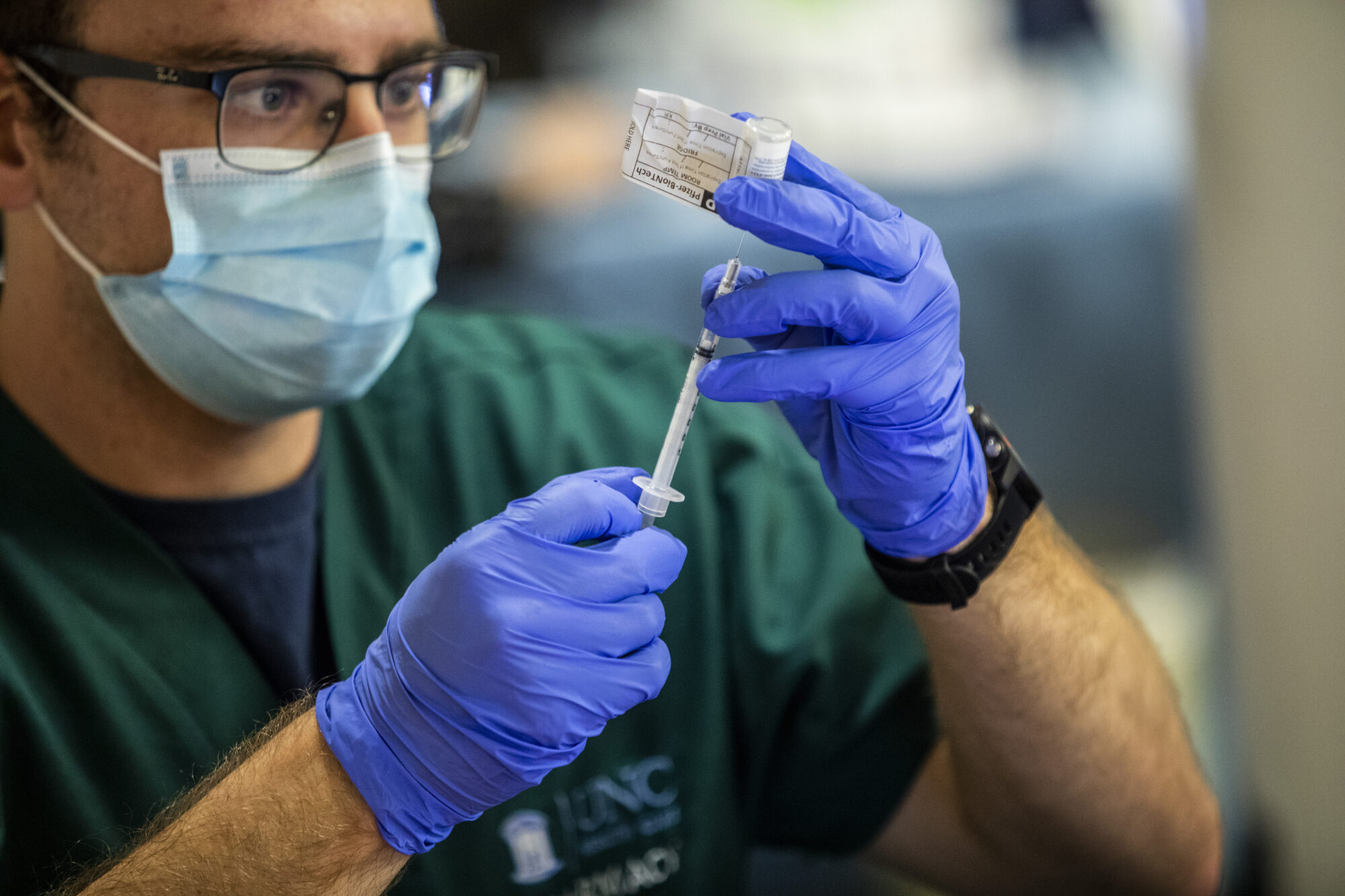
US Regulators Give Full Approval to Pfizer COVID-19 VaccineWritten by LAURAN NEERGAARD and MATTHEW PERRONE The U.S. gave full approval to Pfizer’s COVID-19 vaccine on Monday, a milestone that may help lift public confidence in the shots as the nation battles the most contagious coronavirus mutant yet. The vaccine made by Pfizer and its partner BioNTech now carries the strongest endorsement from the […]
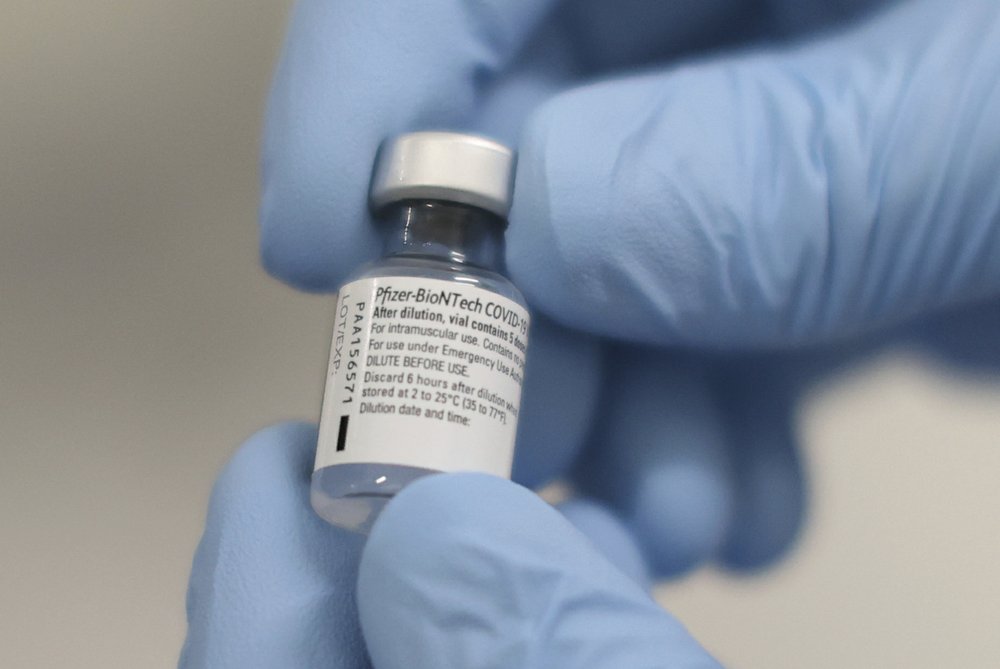
Pfizer COVID-19 Shot Expanded to U.S. Children as Young as 12Written by LAURAN NEERGAARD and CANDICE CHOI U.S. regulators on Monday expanded the use of Pfizer’s COVID-19 vaccine to children as young as 12, offering a way to protect the nation’s adolescents before they head back to school in the fall and paving the way for them to return to more normal activities. Shots could begin […]
![]()
Marathon US Hearings To Decide Fate of COVID Shots for TotsWritten by LAURAN NEERGAARD Parents anxious to finally vaccinate their youngest children against COVID-19, strap in: A lot is set to happen over the next week. On Wednesday, both Moderna and Pfizer will have to convince what’s essentially a science court — advisers to the Food and Drug Administration — that their shots work well in babies, toddlers and […]
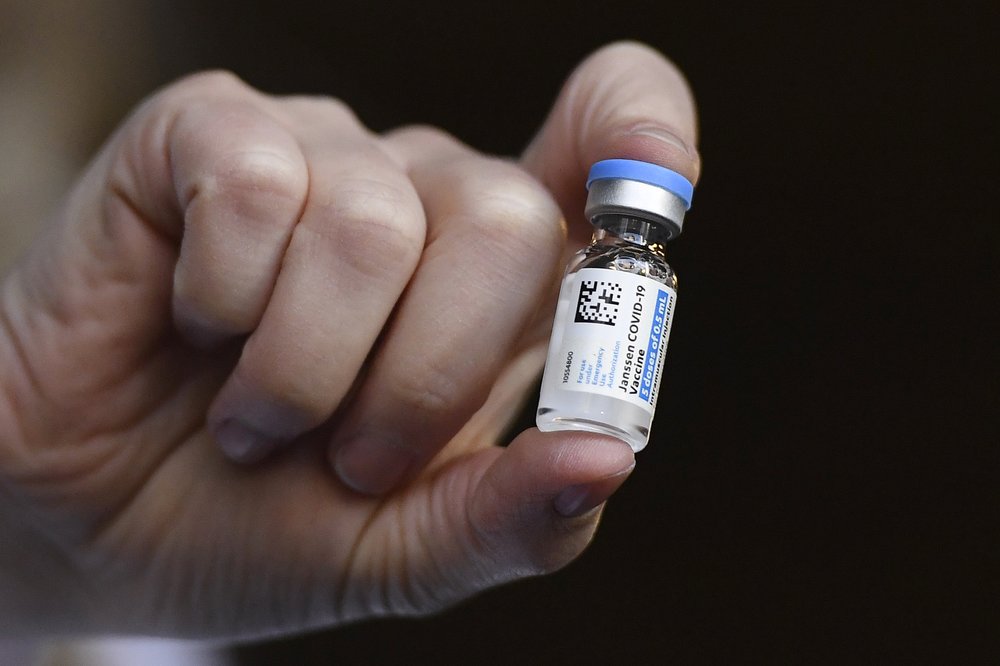
US Expands COVID Boosters to All Adults, Final Hurdle AheadWritten by LAURAN NEERGAARD and MATTHEW PERRONE U.S. regulators on Friday moved to open up COVID-19 booster shots to all adults, expanding the government’s campaign to shore up protection and get ahead of rising coronavirus cases that may worsen with the holidays. Pfizer and Moderna announced the Food and Drug Administration’s decision after at least […]
![]()
COVID Vaccine: CDC Expands Booster Rollout, OKs Mixing ShotsWritten by LAURAN NEERGAARD and MIKE STOBBE Millions more Americans can get a COVID-19 booster and choose a different company’s vaccine for that next shot, federal health officials said Thursday. Certain people who received Pfizer vaccinations months ago already are eligible for a booster and now the Centers for Disease Control and Prevention says specific […]

FDA Panel Endorses Lower-Dose Moderna COVID Shot for BoosterWritten by LAURAN NEERGAARD and MATTHEW PERRONE U.S. health advisers said Thursday that some Americans who received Moderna’s COVID-19 vaccine should get a half-dose booster to bolster protection against the virus. The panel of advisers to the Food and Drug Administration voted unanimously to recommend a booster shot for seniors, adults with other health problems, […]
![]()
What Does Full Approval of Pfizer’s COVID-19 Vaccine Mean?Written by MATTHEW PERRONE What does full approval of Pfizer’s COVID-19 vaccine mean? It means Pfizer’s shot for people 16 and older has now undergone the same rigorous testing and regulatory review as dozens of other long-established vaccines. COVID-19 vaccines in the U.S. were initially rolled out under the Food and Drug Administration’s emergency use […]
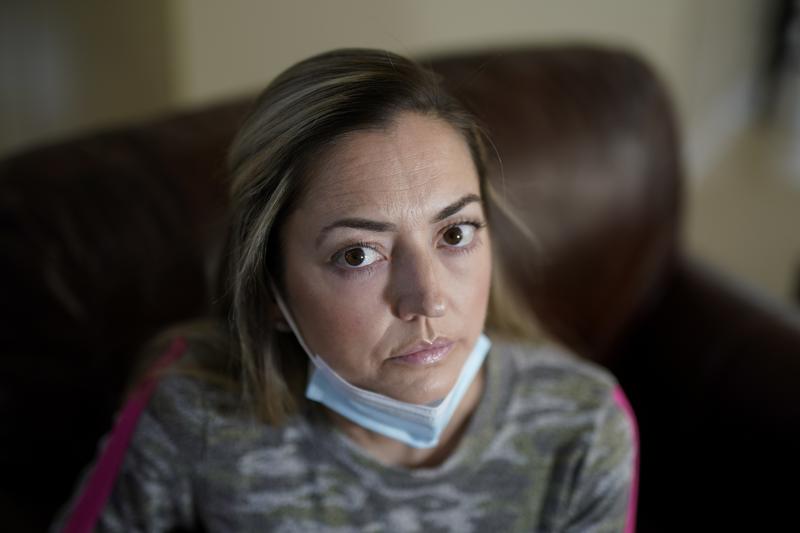
Medically At-Risk North Carolinians Can Get Third COVID ShotWritten by BRYAN ANDERSON North Carolina health officials said Monday that medically vulnerable residents with certain health conditions can get an additional dose of COVID-19 vaccine, though some have already had a third Pfizer or Moderna shot after the U.S. Food and Drug Administration approved it last week. The FDA signed off on the additional dose after […]
›

